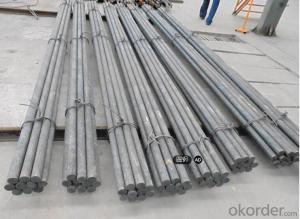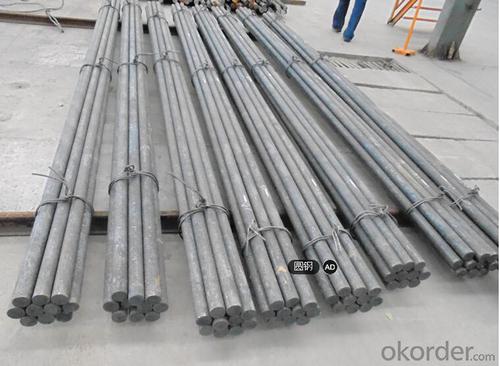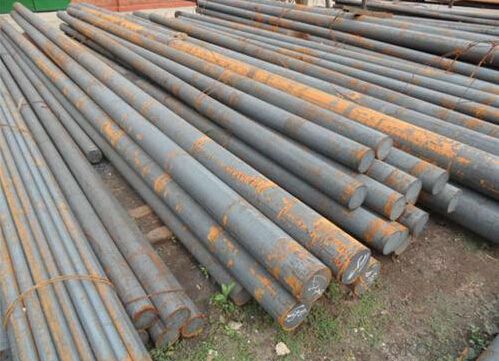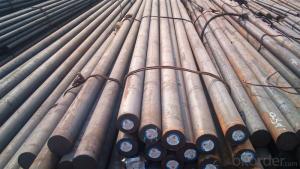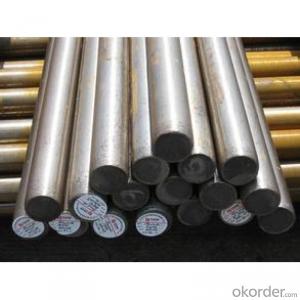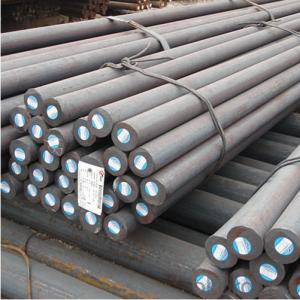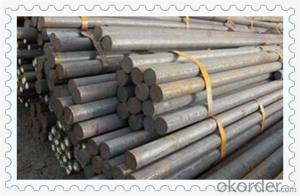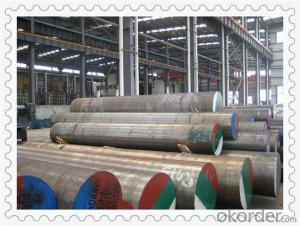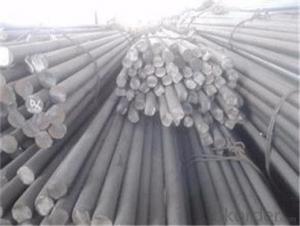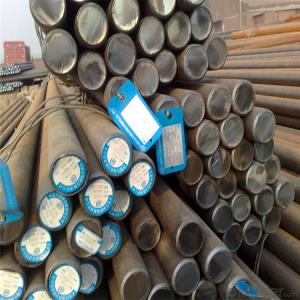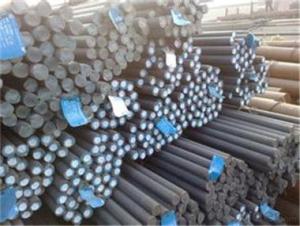C45/AISI 1045/EN8 Carbon Steel Round Bar
- Loading Port:
- Shanghai
- Payment Terms:
- TT OR LC
- Min Order Qty:
- 3 m.t.
- Supply Capability:
- 100000 m.t./month
OKorder Service Pledge
OKorder Financial Service
You Might Also Like
Specification
C45/AISI 1045/EN8 Carbon Steel Round Bar
Details Information of C45/AISI 1045/EN8 Carbon Steel Round Bar
| Name | C45/AISI 1045/EN8 Carbon Steel Round Bar |
| Shape | Round Bar/Square Bar/Flat Bar/Plate/Wire |
| Standard | GB/ASTM/SAE/AISI/DIN/JIS/EN/BS |
| Surface Treatment: | Black/Peeling/Polished/Machined |
| Delivery Condition: | Hot Rolled or Forged/Peeled or Black Surface |
| Test | SGS/UT 100% Elements Testing |
| Certificate: | ISO/Mill Certificate |
| Service: | 24 hours online service / |
| more than 20 years trading and manufacture | |
| Quality Assurance: | the third party inspection, such as SGS, BV, TUV…etc. is acceptable |
| Packaging Details: | Seaworthy Packaging or as per customer's packing instruction |
| Carbon structure round bar | Q195 Q235A Q235B 10# 20#-55# S45CB |
| Low alloy high strength round bar | Q345A/Q345C/Q345D Q345B Q345E |
| Alloy structure round bar | SAE51B20 20Cr 40Cr 40CrV 20CrMo/30CrMo/35CrMo/42CrMo 20CrMoA/30CrMoA/35CrMoA/42CrMoA/42Cr ML20CrMo/ML30CrMo/ML35CrMo/ML42CrMo B7/SCM435-440 20MnTiB 20CrMnMo 20CrMoH 42CrMoH 40MnB/40MnBH 30Mn2-40Mn2 27SiMn 50CrVA 30CrMnTi |
| Pinion steel | 20CrMnTi 20CrMnTiH 20CrMnTiHCS/20CrMnTiHLD Q20CrMnTi-1/Q20CrMnTi-2 |
| Sucker rod | 20-35CrMoA |
| Free-cutting steel | GT1215S |
| Spring steel | 60Si2MnA 65Mn |
| Ball bearing steel | GCr15 |
Chemical Composition of C45/AISI 1045/EN8 Carbon Steel Round Bar
| C | Si | Mn | P | S | Cr | Ni | Cu |
| 0.17-0.24 | 0.17-0.37 | 0.35-0.65 | ≤0.035 | ≤0.035 | ≤0.25 | ≤0.25 | ≤0.25 |
| Tensile strength (σb/MPa) | Yield strength (σb/MPa) | Elongation (δ5/%) |
| ≥410(42) | ≥245(25) | ≥25 |
Company Introduction of C45/AISI 1045/EN8 Carbon Steel Round Bar
CNBM International Corporation is the most import and export platform of CNBM group(China National Building Material Group Corporation) ,which is a state-owned enterprise, ranked in 270th of Fortune Global 500 in 2015.
With its advantages, CNBM International are mainly concentrate on Cement, Glass, Iron and Steel, Ceramics industries and devotes herself for supplying high quality series of refractories as well as technical consultancies and logistics solution.
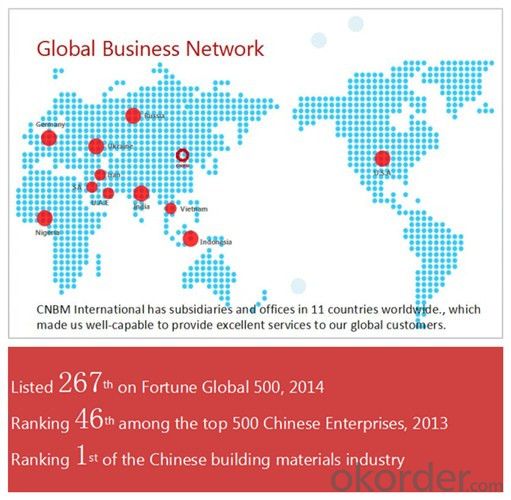
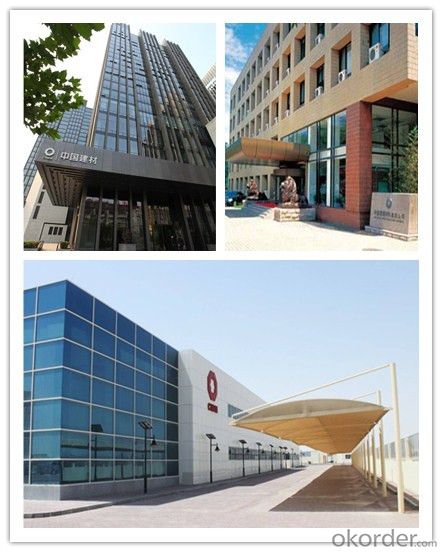
Certificates of C45/AISI 1045/EN8 Carbon Steel Round Bar
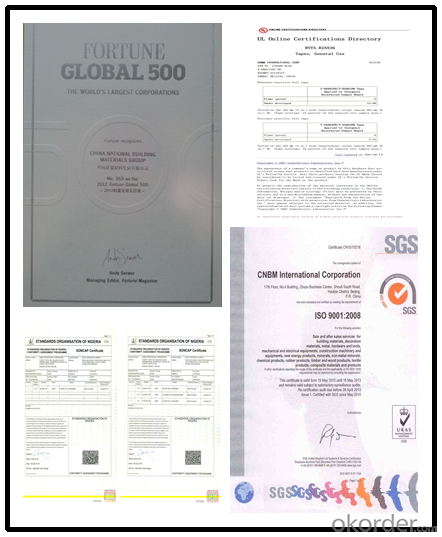
Packaging & Delivery of C45/AISI 1045/EN8 Carbon Steel Round Bar
Packaging Detail | Sea worthy packing /as per customer's packing instruction |
Delivery Detail | 15 ~ 40 days after receiving the deposit |
Products show of C45/AISI 1045/EN8 Carbon Steel Round Bar
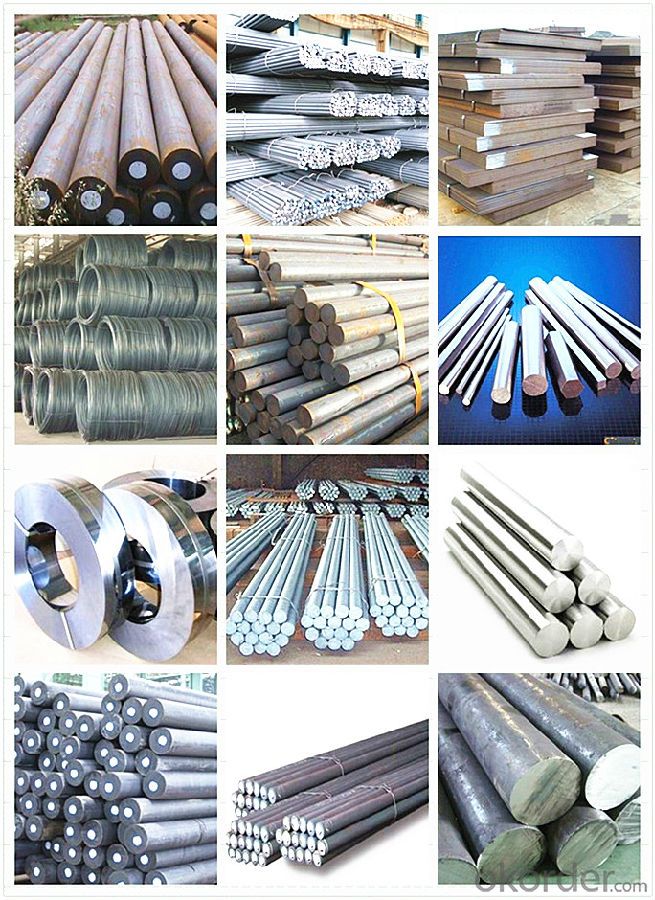
FAQ
Are you a trading company or manufacturer? | Manufacturer |
What’s the MOQ? | 3 metric ton |
What’s your delivery time? | 15-35 days after downpayment received |
Do you Accept OEM service? | Yes |
what’s your delivery terms? | FOB/CFR/CIF |
What's the Payment Terms? | 30% as deposit,70% before shipment by T/T |
Western Union acceptable for small amount. | |
L/C acceptable for large amount. | |
Scrow ,Paybal,Alipay are also ok | |
Why choose us? | Chose happens because of quality, then price, We can give you both. Additionally, we can also offer professional products inquiry, products knowledge train (for agents), smooth goods delivery, excellent customer solution proposals. |
What's your available port of Shipment? | Main Port, China |
What’s your featured services? | Our service formula: good quality+ good price+ good service=customer's trust
|
Where are your Market? | Covering more than 160 countries in the world |
- Q: What are the environmental impacts of manufacturing special steel?
- Manufacturing special steel has significant environmental impacts due to its energy-intensive production process and the extraction of raw materials. The production of special steel requires high temperatures and uses large amounts of fossil fuel-based energy, resulting in substantial greenhouse gas emissions contributing to climate change. Additionally, the extraction of iron ore and other raw materials for steel production can lead to deforestation, habitat destruction, and water pollution. The disposal of steel waste and byproducts also poses challenges, as it can contaminate soil and water sources. Therefore, the environmental impacts of manufacturing special steel must be carefully managed and mitigated through sustainable practices and technologies.
- Q: What are the properties of wear-resistant stainless steel?
- Wear-resistant stainless steel has several properties that make it highly effective in resisting wear and tear. Firstly, it has a high hardness level, which allows it to withstand abrasive forces and maintain its shape under heavy loads. Additionally, it exhibits excellent corrosion resistance, preventing rust or degradation even in harsh environments. This type of stainless steel also possesses good impact resistance, meaning it can withstand sudden impacts without cracking or breaking. Furthermore, wear-resistant stainless steel typically has a low coefficient of friction, reducing frictional forces and minimizing wear when in contact with other materials. Overall, these properties make wear-resistant stainless steel a durable and reliable choice for applications where wear and tear are major concerns.
- Q: What are the different tool steel alloys?
- Tool steel, a type of steel containing carbon and alloy, is specifically designed for producing tools, dies, and cutting applications. There are various tool steel alloys available, each possessing unique properties and characteristics. 1. Carbon Tool Steels: These steels have a higher carbon content, typically ranging from 0.60% to 1.00%. They provide excellent hardness, wear resistance, and toughness, rendering them suitable for cutting and forming tools. 2. High-Speed Tool Steels: These steels are engineered to endure high temperatures while maintaining their hardness and strength at elevated speeds. They usually contain alloying elements like tungsten, molybdenum, and vanadium. 3. Shock-Resistant Tool Steels: These steels are specially formulated to withstand high impact or shock loads without fracturing. They offer exceptional toughness and are frequently utilized for chisels, hammers, and other tools subjected to intense impact forces. 4. Hot-Work Tool Steels: These steels are designed to retain their hardness and strength at high temperatures, making them ideal for applications involving hot forming or forging processes. They exhibit outstanding thermal conductivity and wear resistance. 5. Cold-Work Tool Steels: These steels are specifically designed for applications involving cutting, shearing, and forming at room temperature or lower. They possess high hardness, wear resistance, and toughness, enabling them to withstand the stresses associated with cold-working operations. 6. Mold Steels: Mold steels are primarily used in the production of molds for plastic injection molding, die casting, and extrusion processes. They offer good machinability, high wear resistance, and excellent dimensional stability. 7. Stainless Tool Steels: Stainless tool steels combine the corrosion resistance of stainless steel with the hardness and toughness of tool steel. They are commonly used in applications where both wear resistance and corrosion resistance are required. These examples represent just a fraction of the tool steel alloys available in the market. Each alloy possesses distinct properties and applications, enabling manufacturers to select the most suitable tool steel for their specific requirements.
- Q: Can special steel be used in the railway industry?
- Yes, special steel can be and is commonly used in the railway industry. Special steel alloys such as manganese steel, stainless steel, and wear-resistant steel are often utilized in the manufacturing of railway tracks, wheels, axles, and other components. These special steel materials offer enhanced strength, durability, and resistance to corrosion and wear, making them ideal for withstanding the heavy loads, frequent use, and harsh environmental conditions experienced in the railway industry.
- Q: What are the different types of precipitation-hardening steel?
- There are several types of precipitation-hardening steel, including 17-4 PH, 15-5 PH, 13-8 PH, and 17-7 PH. These steels are known for their high strength and corrosion resistance, making them suitable for various applications in industries such as aerospace, automotive, and medical.
- Q: How does special steel perform in additive manufacturing applications?
- Special steel performs well in additive manufacturing applications due to its high strength, durability, and resistance to wear and corrosion. The unique properties of special steel, such as its ability to withstand high temperatures and extreme environments, make it an ideal material for 3D printing processes. Additionally, the flexibility and customization offered by additive manufacturing allows for the creation of complex geometries and intricate designs, further enhancing the performance of special steel in various applications.
- Q: What are the advantages of using special steel in construction?
- There are several advantages of using special steel in construction. Firstly, special steel offers exceptional strength and durability, making it suitable for high-rise buildings, bridges, and other structures that require long-term stability. Additionally, special steel is resistant to corrosion, which enhances its lifespan and reduces maintenance costs. Furthermore, special steel can be fabricated into various shapes and sizes, allowing for flexible and efficient construction designs. Lastly, due to its recyclability, special steel is an environmentally friendly choice that promotes sustainability in the construction industry.
- Q: How does special steel perform in high-temperature creep conditions?
- Special steel is specifically designed and engineered to perform exceptionally well in high-temperature creep conditions. It exhibits remarkable resistance to deformation and maintains its mechanical properties even at elevated temperatures, making it highly reliable and suitable for applications that require stability and strength in such environments.
- Q: What are the different methods of protecting special steel against corrosion?
- There are several methods available for protecting special steel against corrosion. Some of the commonly used methods include: 1. Coating: Applying a protective coating on the surface of the steel is one of the most effective ways to prevent corrosion. This can be done through various techniques such as hot-dip galvanizing, electroplating, or painting. Coatings act as a barrier, preventing moisture and corrosive substances from coming into contact with the steel. 2. Cathodic protection: This method involves the use of a sacrificial anode or an impressed current to protect the steel. In sacrificial anode cathodic protection, a more reactive metal is connected to the steel, which corrodes instead of the steel. On the other hand, impressed current cathodic protection uses an external power source to provide a continuous flow of electrons, preventing the corrosion process. 3. Alloying: Special steel can be alloyed with specific elements to enhance its resistance to corrosion. For example, stainless steel contains chromium, which forms a passive oxide layer on the surface, protecting it from corrosion. Similarly, adding elements such as nickel, molybdenum, or copper can improve the corrosion resistance of the steel. 4. Passivation: Passivation is a chemical process that involves treating the steel with an acid solution to remove any impurities from the surface. This process promotes the formation of a protective oxide layer, which prevents further corrosion. 5. VCI (Volatile Corrosion Inhibitors): VCI compounds are chemicals that release vapors, which form a protective layer on the surface of the steel. This layer acts as a barrier against moisture and corrosive substances, effectively preventing corrosion. 6. Proper maintenance and cleaning: Regular maintenance and cleaning of the steel surface can significantly extend its lifespan and prevent corrosion. Removing dirt, debris, and corrosive substances from the surface reduces the likelihood of corrosion. It is important to note that the choice of method depends on various factors such as the type of steel, the environment it will be exposed to, and the expected lifespan. Consulting with corrosion experts or engineers can help determine the most suitable method for protecting special steel against corrosion.
- Q: What are the main challenges in machining special steel?
- One of the main challenges in machining special steel is its high hardness, which makes it difficult to cut and shape. Special steels often have high levels of carbon or other alloying elements, making them tough and resistant to wear, but also more challenging to machine. These materials require specialized cutting tools and techniques to ensure efficient and accurate machining. Additionally, special steels can generate high heat during machining, leading to thermal stress and potential distortion of the workpiece. Proper cooling and lubrication are crucial to overcome these challenges and achieve desired machining outcomes.
Send your message to us
C45/AISI 1045/EN8 Carbon Steel Round Bar
- Loading Port:
- Shanghai
- Payment Terms:
- TT OR LC
- Min Order Qty:
- 3 m.t.
- Supply Capability:
- 100000 m.t./month
OKorder Service Pledge
OKorder Financial Service
Similar products
Hot products
Hot Searches
Related keywords
